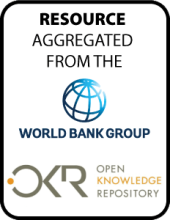Land Library Search
Through our robust search engine, you can search for any item of the over 73,000 highly curated resources in the Land Library.
If you would like to find an overview of what is possible, feel free to peruse the Search Guide.
/ library resources
Showing items 1 through 9 of 435.Recognition and respect for tenure rights has long been recognized as an important concern for development, conservation, and natural resource governance.
Political transformations in most developing nations have been accompanied by vast land claims by indigenous communities who were forcibly detached from their traditional land during colonisation and apartheid-like dispensations.
Peru has formalized property rights for 1,200 indigenous communities in the Amazon. These titled indigenous lands cover over 11 million hectares and represent approximately 17% of the national forest area.
In South Africa, policies of separate development and restrictions placed on capital expenditure imposed on the lands occupied by the indigenous people during the colonial era prevented the state from implementing the cadastre in the communal areas of the country.
The agricultural and food production sector plays a key role in fighting poverty and food insecurity in Moldova, but is facing critical challenges to modernize and integrate into the international market.
Uganda’s progress in reducing poverty from 1993 to 2006 is a remarkable story of success that has been well told. The narrative of Uganda’s continued, albeit it slightly slower, progress in reducing poverty since 2006 is less familiar.
Weather risk and incomplete insurance
markets are significant contributors to poverty for rural
households in developing countries. Weather index insurance
has emerged as a possible tool for overcoming these
Over the last 20 years, poor rural
farmers in Nigeria have seen the benefits of community
organization as a tool for local economic development under
the National Fadama Development Project series. They have
The Malawi Urbanization Review aims to
provide fresh perspectives on urbanization in Malawi, by
analyzing the current and potential contribution of
urbanization to long-term national development and the







